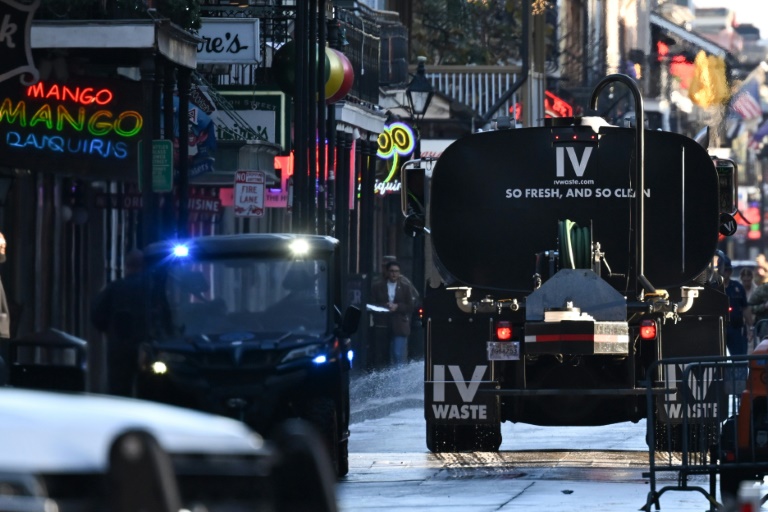from the DJT-continues-to-put-the-‘asshole’-in-‘christ-what-an-asshole’ dept
With the exception of ABC News being weird and just throwing cash at Trump for no apparent reason, every libel lawsuit filed by Donald Trump (or his various business holdings) has failed. This is another one for the loss column. And, despite all these losses, Trump will continue filing lawsuits whenever and wherever there’s a chance to cause some pain, because there’s no national anti-SLAPP legislation in place. With him taking office (again!) this year, there’s no reason to believe we’ll see anti-SLAPP bills go up for a vote for at least the next four years.
Trump has sued the Washington Post before, represented by Charles Harder, and it didn’t go well.
In this case, things have gone even worse. Rather than Harder, Steven Biss was the first lawyer listed on the original complaint. Biss made a name for himself (and not a good one!) for losing lawsuit after lawsuit on behalf of a parade of MAGA clients, starting with Devin Nunes, who also seems to love engaging in baseless libel litigation.
Anyway, here’s another loss for the two-time winner (in terms of presidential races, anyway). Trump’s Truth Social media company (Trump Media & Technology Group Corp. [TMTG]) sued the Washington Post for daring to criticize his social media also-ran with reporting based on credible sources. (h/t Adam Steinbaugh)
Trump’s company first sued in state court, hoping the friendly confines of Florida would save him from making credible defamation arguments. The suit was kicked up to the federal court, which means there’s no anti-SLAPP to worry about, but which also prevents Trump from exploiting the friendly confines of a state run by a fascist wearing 3-inch lifts in his jackboots.
The article Trump sued over was published by the Washington Post in May 2023. The headline obviously made Trump angry enough to get litigious.
Trust linked to porn-friendly bank could gain a stake in Trump’s Truth Social
How so, one might ask. Well, there are more details related to the headline covered in the federal court ruling [PDF].
The article related that in late 2021, with the proposed merger “frozen” and TMTG [Trump Media & Technology Group] concerned about paying its bills, then-DWAC [Digital World Acquisition Corp.] president Patrick Orlando announced he had arranged for an $8 million loan from an entity known as “ES Family Trust.”
According to the article, the loan was part of a deal in which TMTG would receive the loan and, in exchange, ES Family Trust would acquire an equity interest in the public entity to be formed from the merger of TMTG and DWAC. This loan-for-stock deal was reflected, according to the article, in a convertible promissory note, although the article acknowledged that the only copy of the note the Post had been able to locate was unsigned.
The article reported that some of the funds were wired by another entity, Paxum Bank, which had ties to ES Family Trust and to the adult film industry. Also, according to the article, TMTG paid a finder’s fee of $240,000 in connection with the loan to Entoro Securities, a Texas entity of which Orlando was a managing director. Although the article did not refer to a specific document evidencing the payment, it pointed to a broker agreement regarding the fee and an invoice for payment from Entoro.
So, not entirely implausible to claim that a “porn-linked” entity “could” end up with a financial stake in Trump’s Truth Social endeavor.
The article also noted that the British journal The Guardian had earlier reported that federal prosecutors in New York were investigating whether TMTG had violated money laundering statutes in connection with the loan, and that TMTG Chief Executive Officer Devin Nunes had filed a lawsuit against Wilkerson and others (including The Guardian) asserting that the Guardian story was “fabricated.”
Sometimes, you find a competent lawyer. If you’re Devin Nunes (and by extension here, Donald Trump), you find the only lawyer willing to represent you.
Most of Biss’s lawsuits were handed off to a similarly Trumpist lawyer, Jesse Binnall (after Biss was removed from a bunch of cases “on impairment grounds.”). But those cases are still getting the same heave-ho in court. The court first dismissed this lawsuit in March 2024. But it gave Trump and whoever else was involved a chance to amend the lawsuit.
The amended lawsuit doesn’t fare any better. In fact, narrowing the scope of the litigation actually made things worse for the plaintiffs.
As a result of TMTG’s amendments, it is now clear that TMTG does not challenge the accuracy of the bulk of the story set forth in the Post’s article, including the assertions that TMTG borrowed $8 million from an entity or entities with connections to the adult film industry, that the loan deal involved a pledge of stock in the company to be formed by the merger, and that some TMTG executives were concerned about the lack of information regarding the lender.
That narrowed the lawsuit to the sole claim that the Washington Post maliciously (in the legal sense) misrepresented TMTG’s compliance with SEC (Securities and Exchange Commission) funding disclosure guidelines.
Still wrong, says the court. The implications in the Post article have enough factual backing to clear the actual malice hurdle.
TMTG alleges no facts supporting the proposition that the Post acted with actual malice in publishing the statement. TMTG’s conclusory allegation that the Post knew disclosure of ES Family Trust was not required based on the Post’s “consultation with supposed experts” is belied by Ohlrogge’s opinions quoted in the article.
Based on those opinions, the Post reasonably would have believed that disclosure was required,and TMTG’s amended complaint contains no facts plausibly suggesting the Post was aware of contrary expert or other authority from which it would have known Ohlrogge’s opinions were wrong or had serious doubts on that score. Equally insufficient are TMTG’s allegations that the Post “knew” that disclosure of ES Family Trust was not required based on the absence of any disclosure of other lenders in DWAC’s public filings. The article did not assert that TMTG or DWAC should have disclosed the ES Family Trust loan because disclosure of lenders is generally required. It reported Ohlrogge’s opinion that disclosure was required in this instance due to issues relating to this specific loan.
This is who Ohlrogge is and what his opinion means in terms of this ruling:
The [Washington Post] article stated that neither the loan-for-stock deal nor the finder’s fee had been disclosed to shareholders of DWAC or the SEC. It further reported the opinion of Michael Ohlrogge, a New York University law professor who studies SPACs, that these matters could affect the value of the shares and should have been disclosed.
Unfortunately, the plaintiff in this case will get to take another swing at this, despite having already lost twice. Equally unfortunately, the wording in the ruling’s conclusion makes it appear Trump-appointee Judge Thomas Barber really, really wants TMTG to find some way to move the case forward, even if it might mean taking a bit of the First Amendment away from everyone else.
For the reasons set forth above, the amended complaint fails to allege a claim for defamation or a claim for conspiracy. Given the nature of the deficiencies discussed above, and considering the significant obstacles posed for plaintiffs by current defamation law, stating a claim for relief presents significant challenges. However, in an abundance of caution, the Court will dismiss the amended complaint without prejudice and allow TMTG another opportunity to amend.
Yo, those “significant obstacles” are there for a reason, Judge Barber. Let’s not pretend this is unfair. It keeps powerful people from silencing critics and keeps politicians from hiding behind their business interests to punish journalists for reporting facts and well-sourced inferences. This less-than-subtle attack on decades of libel law jurisprudence is, at best, ill-advised. At worst, it signals to people watching cases like these that you’ll give the kind of people you like as many mulligans as you can in hopes that they’ll finally stick it to the people you don’t like.
Filed Under: bogus lawsuit, defamation, donald trump, free speech, libel, slapp suits, steven biss
Companies: trump media, truth social, washington post










Leave a Comment